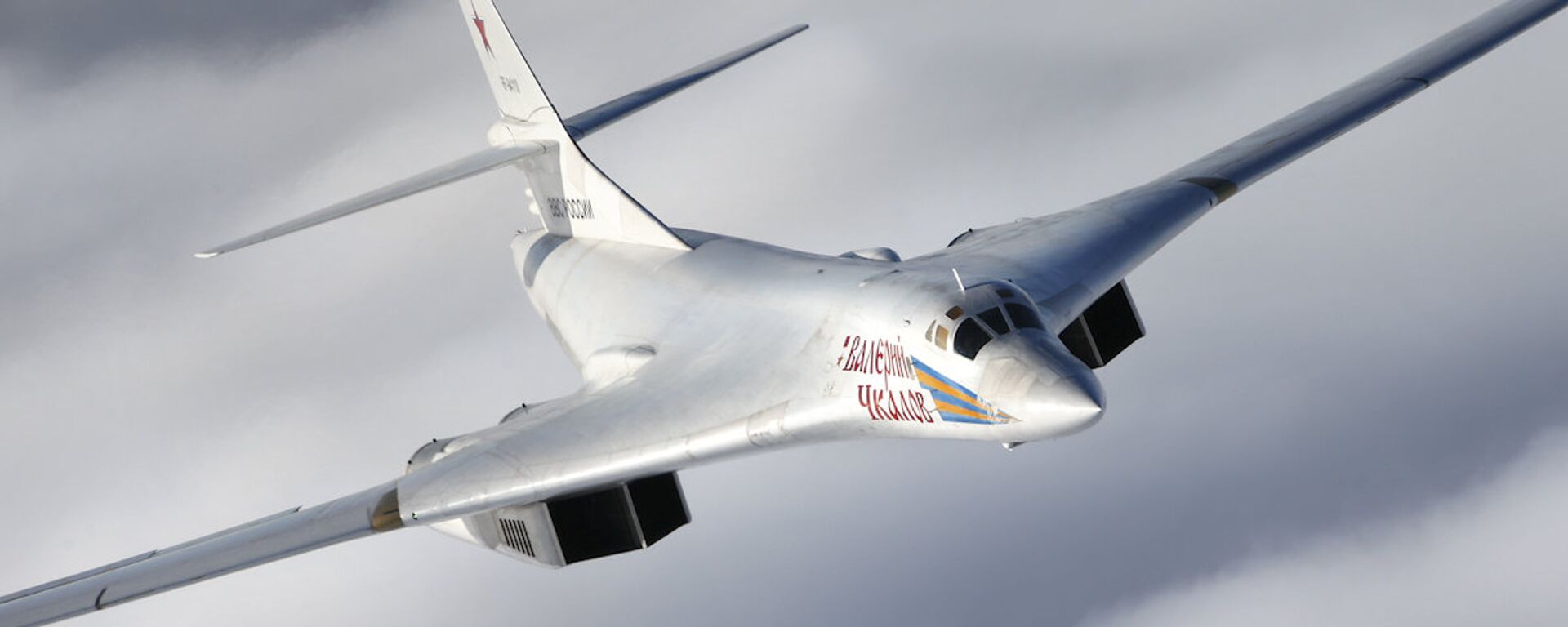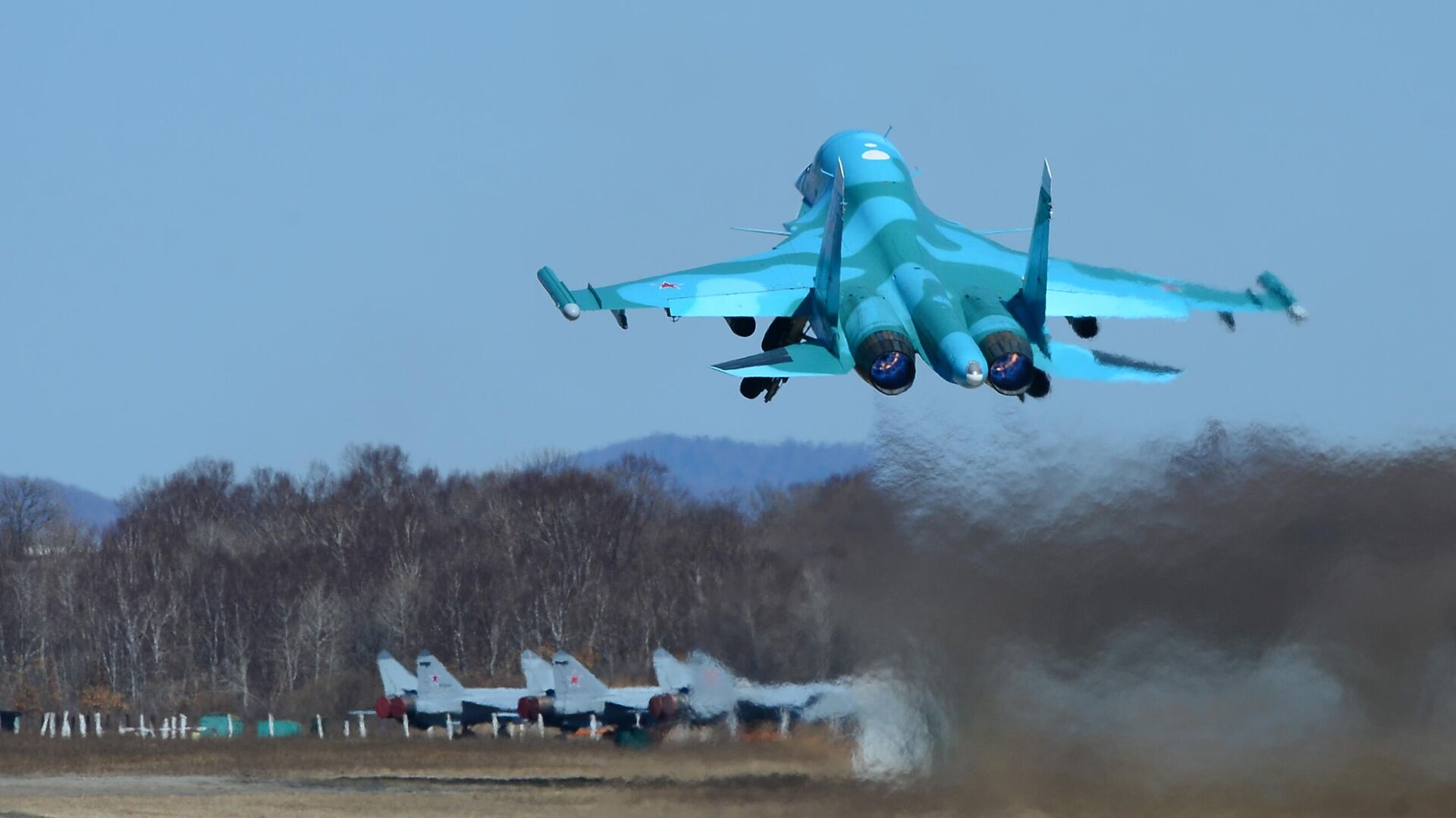https://sputnikglobe.com/20240324/man-and-machine-how-russian-aerospace-forces-navigators-help-ensure-success-of-combat-missions-1117532253.html
Man and Machine: How Russian Aerospace Forces Navigators' Help Ensure Success of Combat Missions
Man and Machine: How Russian Aerospace Forces Navigators' Help Ensure Success of Combat Missions
Sputnik International
March 24 is observed annually in Russia as the Air Force Navigation Service Day. The observance was established in the early 2000s, marking the anniversary of the creation of the first Central Air Navigation Station in the Russian Empire in 1916.
2024-03-24T19:01+0000
2024-03-24T19:01+0000
2024-03-24T19:01+0000
military
russia
vladimir popov
russian aerospace forces
https://cdn1.img.sputnikglobe.com/img/07e6/0a/11/1101963663_0:205:2627:1682_1920x0_80_0_0_9a9890029cd07624ee36447a85db8c56.jpg
While military aviation has come a long way since the days of World War I when the Central Air Navigation Station was established, flight navigators still play an important role in the contemporary Aerospace Forces.Navigators or crew members who perform their function are part of flight crews of virtually all types of military aircraft, from heavy strategic bombers to nimble jet fighters, interceptors, and combat helicopters, explained veteran Russian combat aircraft pilot Maj. Gen. Vladimir Popov.During an interview with Sputnik, Popov, who performed navigator duties during many sorties in his lengthy military career, said that the presence of a good navigator on a mission gives a tremendous boost to a flight crew’s overall efficiency.According to him, a navigator (or a co-pilot who performs the navigator’s function) helps by both performing duties such as guiding the aircraft towards objectives and sometimes taking over targeting, and also providing advice to the pilot when needed.“If the cohesion in a pilot-navigator crew is good, then their overall efficiency is usually very high,” he said.He also noted that there are aeronavigation specialists at command and control facilities who help coordinate the operations of combat aircraft and other armed forces branches such as air defense, to ensure that missions proceed smoothly and no friendly fire incidents take place.The major general also pointed out that, while the advancement of radar, communications and various automated systems made piloting easier, it also led to pilots becoming more “complacent” as a result, with Popov claiming that it makes a navigator’s job all the more important.He further stressed that despite the fact that automated systems operate in accordance with the algorithms put into them, only a human operator can come up with a unique solution “in difficult conditions and especially in an abnormal situation.”
https://sputnikglobe.com/20240223/why-russias-tu-160m-strategic-bomber-is-second-to-none-for-nuclear-deterrence-1116940109.html
russia
Sputnik International
feedback@sputniknews.com
+74956456601
MIA „Rossiya Segodnya“
2024
Sputnik International
feedback@sputniknews.com
+74956456601
MIA „Rossiya Segodnya“
News
en_EN
Sputnik International
feedback@sputniknews.com
+74956456601
MIA „Rossiya Segodnya“
Sputnik International
feedback@sputniknews.com
+74956456601
MIA „Rossiya Segodnya“
russia aerospace forces, air navigation service
russia aerospace forces, air navigation service
Man and Machine: How Russian Aerospace Forces Navigators' Help Ensure Success of Combat Missions
March 24 is observed annually in Russia as the Air Force Navigation Service Day. The observance was established in the early 2000s, marking the anniversary of the creation of the first Central Air Navigation Station in the Russian Empire in 1916.
While military aviation has come a long way since the days of World War I when the Central Air Navigation Station was established, flight navigators still play an important role in the contemporary Aerospace Forces.
Navigators or crew members who perform their function are part of flight crews of virtually all types of military aircraft, from heavy strategic bombers to nimble jet fighters, interceptors, and combat helicopters, explained veteran Russian combat aircraft pilot Maj. Gen. Vladimir Popov.
During an interview with Sputnik, Popov, who performed navigator duties during many sorties in his lengthy military career, said that the presence of a good navigator on a mission gives a tremendous boost to a flight crew’s overall efficiency.
According to him, a navigator (or a co-pilot who performs the navigator’s function) helps by both performing duties such as guiding the aircraft towards objectives and sometimes taking over targeting, and also providing advice to the pilot when needed.
“If the cohesion in a pilot-navigator crew is good, then their overall efficiency is usually very high,” he said.
“A lot depends on navigators’ professionalism and efficiency, their ability to react to various navigational and flight tasks,” Popov added.
He also noted that there are aeronavigation specialists at command and control facilities who help coordinate the operations of combat aircraft and other armed forces branches such as air defense, to ensure that missions proceed smoothly and no friendly fire incidents take place.

23 February 2024, 15:28 GMT
The major general also pointed out that, while the advancement of radar, communications and various automated systems made piloting easier, it also led to pilots becoming more “complacent” as a result, with Popov claiming that it makes a navigator’s job all the more important.
He further stressed that despite the fact that automated systems operate in accordance with the algorithms put into them, only a human operator can come up with a unique solution “in difficult conditions and especially in an abnormal situation.”



